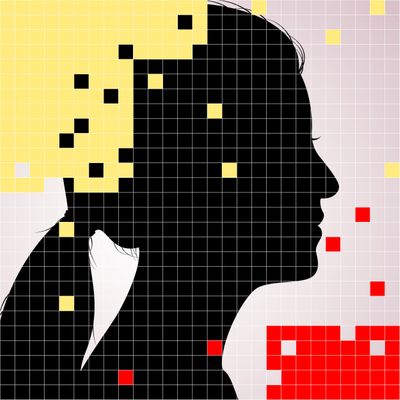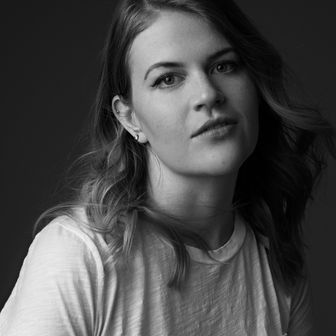
By the time I was eight months sober, the version of myself who drank felt like a distant memory. I’d think back on her with pity, and a little condescension. Why did I think I needed alcohol to have fun? I’d wonder, knowing full well that fun had nothing to do with it. In sobriety, I’d become a new person, I thought — someone braver and calmer who had more hobbies and did more laundry. This version of myself seemed permanent and unshakable, until a few weeks ago.
I quit drinking on July 14, 2019, without a plan. I just woke up that day with another brutal hangover, after another night of blotchy memories, and decided I couldn’t do it anymore. “Someone at the party told me some really good gossip about [a Big Name Actor], but when I woke up the next morning I couldn’t remember any of it.” That’s the line I use when sobriety comes up and I want to lighten the mood. I don’t talk about how small my life had gotten — preparing to drink; drinking; recovering from drinking — or how I had started to resent drinking with other people because they slowed me down.
The first couple of weeks, I felt like I was wearing my skin inside out, all of my nerves exposed painfully, gruesomely to the world. Even in situations where I wouldn’t have usually been drunk, like at work or while running errands, I felt unsteady.
Weekends, which once sped by before I could even get a good look at them, felt eternal. Saturday mornings I would wake up full of energy and wonder what it was that people did when they weren’t hungover. I started running laps around Prospect Park, organizing hikes, kickboxing. Physical exhaustion, it seemed, could quiet the anxious thoughts in my head almost as effectively as alcohol had.
It wasn’t until a couple of months after I quit that I went to my first meeting, where I sat in the back, said nothing, and avoided eye contact with people. At the second one, a woman sitting next to me suggested that God had brought us together so she could be my sponsor. I smiled politely and thought, Give me a break. I didn’t go back after that.
I wasn’t really an alcoholic anyway, I figured. I was someone who abused alcohol, not someone who depended on it. Except for the times when I did depend on it, like when I felt sad, or angry, or happy, or whenever I was going to go to a party, or on a date, or if I happened to be bored.
The physical activity helped, and so did time. By month eight, I had new routines, deeper relationships, clearer skin. I’d occasionally find myself musing about how nice it would be to have a crisp, cold glass of white wine that tasted bright and green, like limestone and freshly cut grass, but I’d quickly dismiss the thought. My dry life was going so well, why would I bother drinking? I began to wonder if I had exaggerated my own alcohol use. Maybe I was making a fuss out of nothing.
It was two weeks into social distancing that I started craving alcohol again. It wasn’t a nice glass of Sauvignon Blanc that I wanted, it was two bottles. Of anything.
“I can’t believe I have to be fully conscious for all of this!” I whined on Zoom calls to friends, affecting a falsely jokey tone. Privately, I was ashamed of my overwhelming desire to escape, to get obliterated, to avoid bearing witness to all the horrible things happening to people who were suffering far more than me. I was ashamed that a version of myself I thought I had left behind had been with me all along. I felt selfish. I felt like a coward.
I tried to do the things that had helped me when I first quit. After my gym closed, I did push-ups on the floor between my bed and my dresser. I tried to maintain a safe distance from others while I ran around the park. But working out in the room where I was already spending 23 hours a day didn’t do much to quiet my mind, and running in a mask made my lungs burn.
To get through the day, I started using phrases I’d heard other people in recovery say. I will not drink today, I’d tell myself. One day at a time. With my computer’s video and microphone off, I attended virtual meetings, listening to people from across the world talk about how grateful they are for their sobriety. I read and reread the 12 steps, and wondered what it would be like to take each one.
The term alcoholic is one I avoided when I first quit drinking. It seemed too big for me, too weighed down already by baggage that wasn’t my own. As Caroline Knapp wrote in her memoir Drinking: A Love Story: “Alcoholic is a nasty word, several decades of education notwithstanding. Say it out loud and chances are you still get the classic image of the falling-down booze-hound: an older person, usually male, staggering down the street and clutching a brown paper bag.” Never mind that I knew this picture was inaccurate, outdated; never mind that I personally knew many alcoholics who didn’t fit that mold. Because I didn’t drink every day, because I’d been able to hold down a job and pay my rent every month, the title didn’t seem like mine to claim. (I was, by no means, alone in my ambivalence.)
What’s more, to call myself an alcoholic felt like it would tarnish all of the good memories I had of drinking — the afternoons spent drinking wine on a picnic blanket with friends; my dad teaching me to make the perfect martini; drinking beer on a hill at night with a boy I loved. Could I still treasure those moments if they intersected with a problem?
Lately, though, I’ve found comfort in the term. Calling myself an alcoholic simplifies things at a time when nothing feels simple — when taking the dog for a walk or getting groceries involves a complex series of calculations and choreographies and costume changes. It was a lot easier to sit comfortably with the ambiguity of what to call myself or not, and what it meant to call myself something or not, when the rest of my life felt more or less stable.
Now, I feel myself grasping for certainty. If I am an alcoholic, that means I can’t have alcohol, period. It doesn’t matter how easy it would be to get away with drinking right now. It doesn’t matter that I have nothing to look presentable for in the mornings, and that no one would ever know if I downed two bottles of wine alone in my bedroom one night. I can’t do that. I’m an alcoholic.


